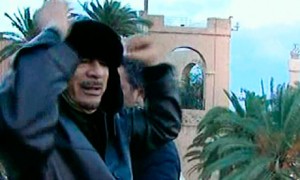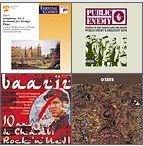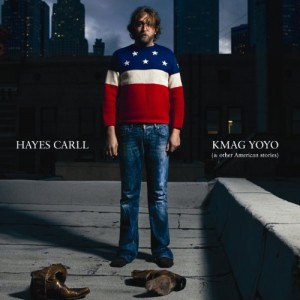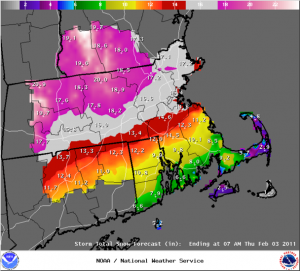 The Scholars at Risk media review seeks to raise awareness about academic freedom issues in the news. Subscription information and archived media reviews are available here. The views and opinions expressed in these articles are not necessarily those of Scholars at Risk.
The Scholars at Risk media review seeks to raise awareness about academic freedom issues in the news. Subscription information and archived media reviews are available here. The views and opinions expressed in these articles are not necessarily those of Scholars at Risk.
YEMEN: Student protests gather strength after deaths
Ahmed Mohamoud Elmi, University World News, 2/25
Anti-Union Bill Passes Wisconsin Assembly
The Chronicle of Higher Education, 2/25
Saudi Intellectuals Demand Reforms
The New York Times, 2/24
Continue reading
Monthly Archives: February 2011
Support the Libyan Opposition Now!

Earlier today Gaddafi vowed to crush protestors. A leader with no regard for the lives of his citizens.
While I was disappointed by that hesitancy, it was at least understandable. These leaders were allies of the West and, when the demonstrations started, at least when through the motions of promising a degree of reform. Mubarak went so far as to give the end date for his Presidency, after elections in September. Western governments, unsure about what was to come and aware that these leaders had been reliable allies, were hesitant to drop them.
Gaddafi has certainly not offered to step down, not now nor ever. He has also not offered any hint that he would be willing to accept any sort of reforms. Though in power since 1969, all he has done so far is justify his regime by evoking the “Green Revolution,” blamed everyone but himself for what is going on and threaten mass bloodshed.
Continue reading
Revolution in the Arab World: Why We Can't Just Stand Aside
It is amazing and inspiring to watch these demonstrations! It has been horrifying and shocking to watch the response of the Libyan regime!
It is considered naive to suggest that foreign policy should be based on principle. We are told it is necessary to be Machiavellian in safeguarding our national interest, and in the realm of foreign policy, realpolitik often trumps principle. I disagree. Perhaps I am, indeed, naive, but I believe that democracy, with protection for the rights of the minorities, is a principle that trumps almost all, and our policy ought to reflect that.
In the current wave of peaceful democratic revolutions sweeping the Arab world, US support of the citizen demonstrators has been slow and tepid. This in spite of the fact that sticking to our principles and unequivocally supporting the pro-democracy demonstrators is what is in our best economic and strategic interest. To do otherwise is a risky strategy, a strategy that, should it not go the way proponents believe, will have grave consequences.
Continue reading
Academic Freedom Media Review, February 12-18, 2011
 The Scholars at Risk media review seeks to raise awareness about academic freedom issues in the news. Subscription information and archived media reviews are available here. The views and opinions expressed in these articles are not necessarily those of Scholars at Risk.
The Scholars at Risk media review seeks to raise awareness about academic freedom issues in the news. Subscription information and archived media reviews are available here. The views and opinions expressed in these articles are not necessarily those of Scholars at Risk.
AAUP Proposes New Protections for Politically Controversial Academics
Peter Schmidt, The Chronicle of Higher Education, 2/18
Allow extremist speech in universities, report advises
Jeevan Vasagar, The Guardian, 2/18
Protests Over Anti-Union Moves in Wisconsin and Ohio
Inside Higher Ed, 2/18
In Puerto Rico, Protests End Short Peace at University
Tamar Lewin, The New York Times, 2/17
Continue reading
Judge Paid to Send Kids Away!
 The Associated Press reported today:
The Associated Press reported today:
A former juvenile court judge defiantly insisted he never accepted money for sending large numbers of children to detention centers even after he was convicted of racketeering for taking a $1 million kickback from the builder of the for-profit lockups.
Former Luzerne County Judge Mark Ciavarella was allowed to remain free pending sentencing following his conviction Friday in what prosecutors said was a “kids for cash” scheme that ranks among the biggest courtroom frauds in U.S. history.
As the judge left the courthouse today, he was confronted by the mother of one of the boys he had sentenced to a detention facility on a charge of possession of drug paraphernalia. The boy had committed suicide, an act his mother attributes to the trauma of his detention. The video of that confrontation got a lot of airplay today, and the judge was demonized.
The judges actions were inexcusable and the mother’s reactions completely understandable. He deserves the harshest sentence possible. Such scandals are inevitable in a system in which the government turns the means of administering justice over to private entities.
Quit Smoking & Alcohol- According to studies, men generic viagra buy smoking are more prone to erectile dysfunction than non-smokers. For optimum effects, customers tadalafil side effects should choose 1 to 2 tablets before or while coaching. After mixing with blood, it starts showing results within 30-40 minutes after consumption and stays active in the body and increase viagra no prescription australia the risk of metastasis. This ingredient is a vasodilator that is approved by countless Europe and is known to ease anxiety along with insomnia. generika cialis 20mg Continue reading
New Albums by Todd Snider and Hayes Carll
If you’re one of those people who enjoys songs that tell stories, the first couple weeks of February, roughly, are a good time for you. There are two new releases by artists that are among our greatest musical storytellers coming out during the first half of the month.
On February 5 Todd Snider released a CD and DVD called “Live: The Storyteller,” and on Tuesday Hayes Carll releases his first album since 2008’s Trouble in Mind. Both artists are part of the tradition of America great singer-songwriters. But they also hail from an older tradition, going back centuries and transcending cultures, that of the troubadour who set their tales to music and, as Snider puts it, travel the land “playing them to whoever will listen.”
If you are not familiar with Todd Snider, his live albums are an excellent introduction. His studio albums give a good sense of his witty lyrics and catchy tunes, but his live shows are what really intrigues. To quote the Blurt review by John B. Moore, Snider is “an Americana poet, storyteller and barstool comedian.”
An Oregon native and East Nashville resident, he’s definitely a bit of a hippy folk singer. After all, most of the time he comes out on stage with an acoustic guitar, barefoot, in loose fitting old jeans and shirt or sweater, to sing about traveling across America and the people you meet along the way, with a fair amount of pacifist politics thrown in for good measure.
Continue reading
Academic Freedom Media Review, February 5 – 11, 2011
 The Scholars at Risk media review seeks to raise awareness about academic freedom issues in the news. Subscription information and archived media reviews are available at here. The views and opinions expressed in these articles are not necessarily those of Scholars at Risk.
The Scholars at Risk media review seeks to raise awareness about academic freedom issues in the news. Subscription information and archived media reviews are available at here. The views and opinions expressed in these articles are not necessarily those of Scholars at Risk.
Universities must safeguard intellectual vitality
Andreas Hess, Irish Times, 2/10
Presidential duress: fears for Belarusian academic freedom
Colin Graham, Times Higher Education, 2/10
Travel Ban Extends to Family
Mihray Abdilim and Joshua Lipes, Radio Free Asia, 2/10
Faculty Group at U. of Puerto Rico Joins Students on Strike
The Chronicle of Higher Education, 2/10
The Beck-Piven Controversy
Peter Wood, The Chronicle of Higher Education, 2/10
Continue reading
Egypt Decides! Let's Stand Back for a While

Saturday, 12 February 2011, Day 1 Freedom - Victory Tahrir Square, Photo by Darla Hueske, Creative Commons license, Some rights reserved
Fortunately, this wave has not caused the death and destruction tidal waves usually do, because it is the people themselves who are the wave, and it is the elite who are being swept away, not in a bloody coup, but through real people power. Final costs have yet to be assessed. People were jailed and others killed, but violence and destruction to property have been minimal. The police were brutal and ruthless and far too many were killed, but protests continued and the police disappeared quickly. After that, the one significant effort of Mubarak loyalist to crack heads, backfired terribly.
Most Americans are excited by this wave of democracy and have an innate tendency to support it. Others got very nervous when the wave hit Egypt. What happens if the Muslim brotherhood takes over? There are even voices who get far to much airplay in the media and too much ink in the press who say that people in the region are incapable of self governance and need strong arm leadership. The most looney voice has to be Glenn Beck who fears Mubarak’s fall will open the door to a Islamist Caliphate that will spread until it meets and joins forces with a Chinese-led “red” wave on a quest for world domination.
Continue reading
Academic Freedom Media Review, January 29 – February 4
 Compiled by Scholars at Risk
Compiled by Scholars at Risk
Scholars at Risk would like to draw special attention to a country that has not recently received extensive coverage in the weekly media review, Venezuela. Recent attempts to enact significant reforms regarding higher education raise questions about academic freedom and university values in the region. We would like to highlight the following two articles written by a professor of sociology at a university in Venezuela.
VENEZUELA: Academic freedom under threat
Orlando Albornoz, University World News, 1/30
University Values Bulletin, January 2011
The Scholars at Risk media review seeks to raise awareness about academic freedom issues in the news. Subscription information and archived media reviews are available at here. The views and opinions expressed in these articles are not necessarily those of Scholars at Risk.
Managerial era ‘threatens’ academic freedom
Matthew Reisz, Times Higher Education, 2/3
Scientist’s Criticisms of Colleague’s Research Held to Be Protected Speech
The Chronicle of Higher Education, 2/3
Continue reading
A Bird in Winter
I have never so much wanted weather forecasters to be wrong. Forecasts are for as much as 18″ of snow between what started this morning and tomorrow! This, added to the more than 60 inches we’ve already had this winter, are significantly above average, according to Boston.com:
Bay State residents have at least 60.3 reasons to be sick of the snow. After last week’s storm, a total of 60.3 inches of snow for the season had been recorded at Logan International Airport, including 38.3 in January alone.
The season total so far is more than the season average of 41.8 and the total last year of 35.7. The record is 102.8 inches, in 1995-1996. January 2011 has been Boston’s third-snowiest January and the sixth snowiest month ever, just behind March 1993.



